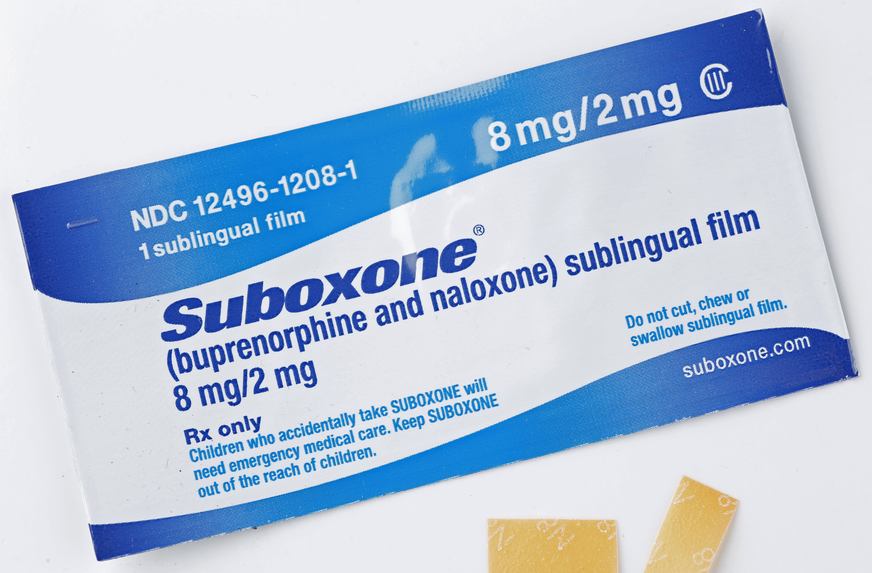Anti-Opioid Meds Suboxone Film Linked to Tooth Decay, Tooth Loss
Suboxone, a medication commonly used to treat opioid addiction, has been linked to serious dental problems such as tooth decay and tooth loss. These issues have been reported even in patients with no prior history of dental issues, which is a major concern for users. While Suboxone is a valuable tool in combating opioid addiction, it is important to be aware of the potential side effects and take necessary precautions to protect oral health. If you or someone you love used Suboxone and suffered from tooth decay or another major dental issue, contact us as soon as possible to discuss the possibility of filing a Suboxone tooth decay lawsuit.
Suboxone and its Role in Opioid Addiction Treatment
Suboxone is a medication that combines two active ingredients: buprenorphine and naloxone. Buprenorphine is a partial opioid agonist, which means it activates opioid receptors in the brain to a lesser degree than full agonists like heroin or prescription painkillers. This helps reduce withdrawal symptoms and cravings without producing the intense high associated with opioids. Naloxone, an opioid antagonist, reverses the effects of opioids and can trigger withdrawal symptoms if misused. As part of medication-assisted treatment (MAT), Suboxone is often prescribed to individuals with opioid use disorder (OUD) to help them manage their addiction and work toward recovery. It is important to note that Suboxone should only be taken as prescribed by a healthcare professional and under close supervision.
The Link Between Suboxone and Tooth Decay
Reports have emerged recently, linking Suboxone, particularly the sublingual film version, to dental problems such as tooth decay, cavities, oral infections, and tooth loss.
These issues have even been observed in patients without a history of dental problems. The acidic nature of the medication, when dissolved in the mouth, is believed to contribute to the weakening of tooth enamel and the development of dental issues.
According to data collected by the FDA, there have been more than 305 reports of dental problems associated with buprenorphine medicines dissolved in the mouth, with 131 reports classified as “serious.” The average age of patients affected was 42, but even individuals as young as 18 were impacted. The most common treatment mentioned in these cases was tooth extraction or removal.
Recommendations for Individuals Taking Suboxone
While the benefits of Suboxone in treating opioid addiction are significant, it is crucial for individuals taking this medication to prioritize their dental health. Regular dental checkups and good oral hygiene practices can help mitigate the risk of tooth decay and other dental problems associated with Suboxone use. Patients are advised to:
- Schedule Dental Appointments: Schedule an appointment with a dentist soon after starting Suboxone treatment. Inform your dentist about the medication you are taking and discuss any specific concerns or questions you may have.
- Maintain Good Oral Hygiene: Practice regular brushing and flossing to keep your teeth and gums healthy. Consider using fluoride toothpaste and mouthwash to strengthen enamel. Waiting at least one hour after Suboxone has dissolved before brushing can help protect your teeth.
- Report Dental Issues: If you experience any dental problems, such as tooth decay, cavities, or oral infections, while taking Suboxone, notify your healthcare professional immediately. Seek dental treatment promptly to address these issues and prevent further complications.
Recommendations for Healthcare Providers
Healthcare providers also play an important role in helping patients avoid tooth decay and other dental problems associated with Suboxone. To mitigate these issues, healthcare providers can:
- Screen patients for oral health issues and inquire about their dental history before initiating treatment with Suboxone.
- Educate patients about the potential dental risks associated with Suboxone use and the importance of maintaining good oral hygiene.
- Provide thorough medication education to patients, including information about the safety risks and potential side effects of Suboxone.

Pursuing Claims for Suboxone Tooth Decay Injuries
"The U.S. Food and Drug Administration (FDA) is warning that dental problems have been reported with medicines containing buprenorphine that are dissolved in the mouth. The dental problems, including tooth decay, cavities, oral infections, and loss of teeth, can be serious and have been reported even in patients with no history of dental issues."
Pursuing Claims for Suboxone Tooth Decay Injuries
In some cases, individuals who have experienced severe tooth decay or tooth loss due to Suboxone use may be eligible to pursue legal action against the manufacturers. One of the first Suboxone tooth decay lawsuits was filed in September 2023, by an Ohio man who alleged that the manufacturers knew about the risks of dental problems associated with Suboxone long before the FDA required new label warnings in 2022, and failed to adequately warn patients about these risks. If you or a loved one has suffered dental injuries due to Suboxone use, it is important to consult with an attorney specializing in drug injury cases. They can provide guidance on pursuing a claim and seeking compensation for medical expenses, pain and suffering, and other damages.
Who Qualifies to file a claim?
Currently, attorneys are filing claims for individuals who sublingually (oral film) used Suboxone Film prior to January 2022 and suffered:
- Tooth loss or tooth extraction of multiple teeth
- Do not have a documented history of methamphetamine or heroin use
- Prescription and use were not exclusively in the following states: New Jersey, Texas, Louisiana, Kentucky, Michigan, Tennessee, & Virginia.
- As of February 2024, we are currently filing claims for people who live in states and used/were prescribed Suboxone in states that have a Statute of Limitations of 3 years or more:
-
Arkansas, Connecticut, District of Columbia, Maryland, Massachusetts, Mississippi, Montana, New Hampshire, New Mexico, New York, North Carolina, Rhode Island, South Carolina, South Dakota, Washington, Wisconsin, Maine, Minnesota, Missouri, Nebraska, North Dakota, Wyoming.
-
- We are not accepting claims for states with 2 year Statute of Limitations or less:
- Alabama, Arizona, Alaska, California, Colorado, Connecticut, Georgia, Hawaii, Idaho, Illinois, Indiana, Iowa, Kansas, Kentucky, Louisiana, Mississippi, Nebraska, New Jersey, Ohio, Oklahoma, Oregon, Pennsylvania, Tennessee, Texas, Utah, Virginia, West Virginia.
Find Out How We Can Help
Suboxone may be an effective tool in the treatment of opioid addiction. However, the drug has been associated with serious dental problems and could potentially expose users to side effects like tooth decay and tooth loss. It is important for individuals taking Suboxone to prioritize their dental health and follow recommended practices for maintaining good oral hygiene. Regular dental checkups and prompt treatment for any dental issues are crucial in minimizing the risks associated with Suboxone use. If you have experienced dental injuries that you believe may be due to Suboxone use, contact us right away to explore your options for pursuing legal action. We can evaluate your claim and determine whether you may be eligible for financial compensation.
Did you or a loved on use one of the following narcotic dependence drugs: Suboxone, Belbuca or Zubsolv; for six months or longer and suffer severe tooth decay resulting in tooth loss or other serious oral health complications?
Find out now if you qualify for compensation.
Find Out MoreConsumer Safety Watch offers safety advocate services and attorney referral services for patients throughout the United States including the states of Alabama, Alaska, Arizona, Arkansas, California, Colorado, Connecticut, Delaware, Florida, Georgia, Hawaii, Idaho, Illinois, Indiana, Iowa, Kansas, Kentucky, Louisiana, Maine, Maryland, Massachusetts, Michigan, Minnesota, Mississippi, Missouri, Montana, Nebraska, Nevada, New Hampshire, New Jersey, New Mexico, New York, North Carolina, North Dakota, Ohio, Oklahoma, Oregon, Pennsylvania, Rhode Island, South Carolina, South Dakota, Tennessee, Texas, Utah, Vermont, Virginia, Washington, West Virginia, Wisconsin and Wyoming.
Consumer Safety Watch offers consumer safety advocate services or can help you find an attorney throughout the United States including the following cities: Albuquerque, NM; Arlington, TX; Atlanta, GA; Austin, TX; Baltimore, MD; Boston, MA; Charlotte, NC; Chicago, IL; Cleveland, OH; Colorado Springs, CO; Columbus, OH; Dallas, TX; Denver, CO; Detroit, MI; Fresno, CA; Fort Worth, TX; Indianapolis, IN; Honolulu, HI; Houston, TX; Jacksonville, FL; Kansas City, KS; Kansas City, MO; Las Vegas, NV; Long Beach, CA; Los Angeles, CA; Louisville, KY; Memphis, TN; Mesa, AZ; Miami, FL; Miami, OH; Milwaukee, WI; Minneapolis, MN; Nashville, TN; New York City, NY; Oakland, CA; Oklahoma City, OK; Omaha, NE; Philadelphia, PA; Phoenix, AZ; Pittsburgh, PA; Portland, OR; Sacramento, CA; San Antonio, Tx; San Diego, CA; San Francisco, CA; San Jose, CA; Seattle, WA; St. Louis, MO; Tampa, FL; Tucson, AZ; Tulsa, Virginia Beach, VA; Washington, DC; Wichita, KS.
This website is not affiliated with any pharmaceutical or medical device company or any trademarked product. Results are not guaranteed. This website provides a free matching service and is not responsible for information or services from third party providers. Consumer Safety Watch is not a law firm. Every case is different and services available can vary.


